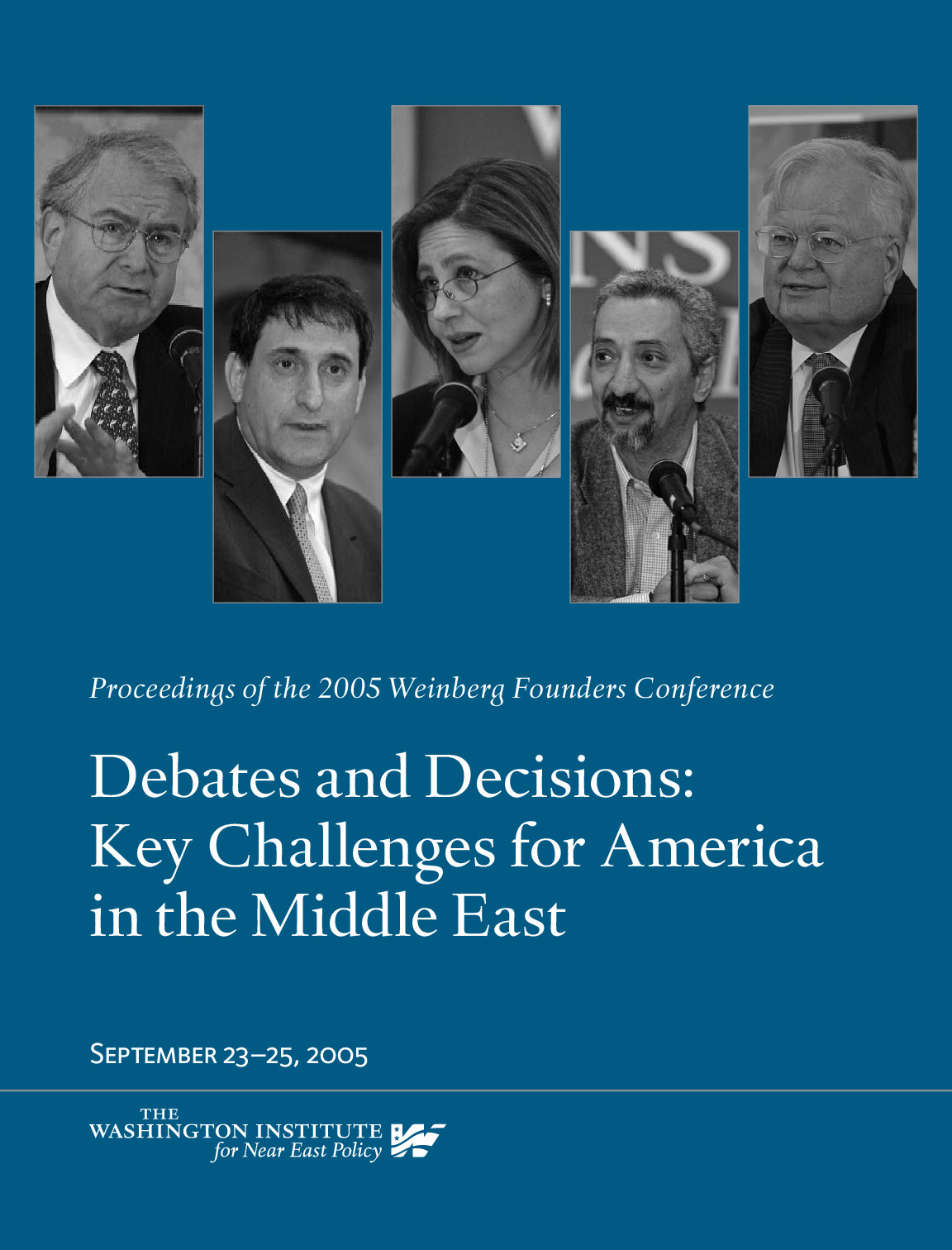One year after President George W. Bush's stirring second inaugural, the United States faced a series of difficult challenges in the Middle East. Some of these concerned execution of policy, such as the speed with which trained Iraqi security forces could deploy to the field and the efficiency with which international economic assistance would translate into tangible improvements for Palestinians in Gaza. More profound were the fundamental questions that arose about the definition of policy itself, including America's strategic objectives in Iraq, the administration's stance on engaging Islamist political elements, the appropriate response to Iran's nuclear ambitions, and the proper balance of effort toward expanding democracy and ensuring security in key Middle Eastern states.
To discuss these topics, The Washington Institute convened its annual Weinberg Founders Conference in September 2005. In plenary sessions, breakout discussions, and hallway conversations, a select group of policymakers, diplomats, journalists, and experts -- together with the Institute's Board of Trustees -- addressed an agenda of issues critical to U.S. Middle East policymaking. The resultant proceedings contain edited transcripts and summaries of remarks delivered by many of the distinguished participants, including Robert Blackwill, Samuel Berger, Sallai Meridor, Ibrahim Karawan, Hala Mustafa, Nabil Amr, Dennis Ross, Alastair Crooke, Jacques Pitteloud, William Quandt, and numerous others hailing from the United States and abroad.
Pages: 42
Distributor: WINEP



